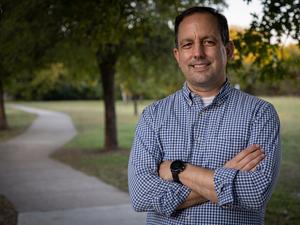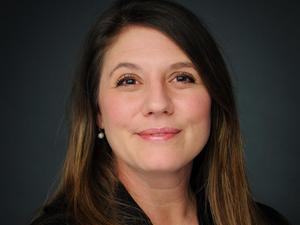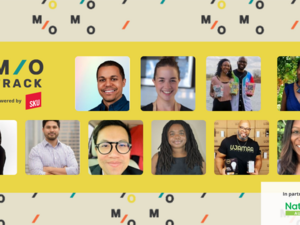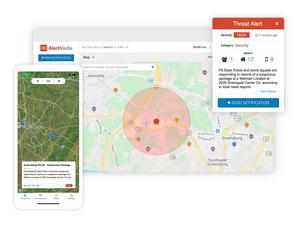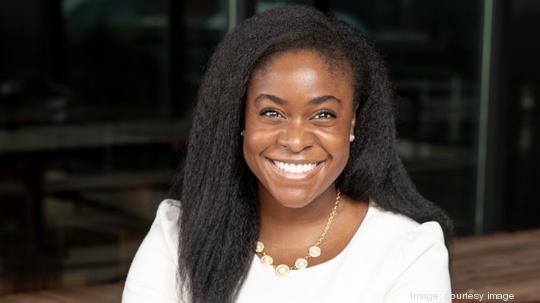
What Janice Omadeke started a few years ago with a PDF and a dream has evolved into a business at the forefront of diversity in tech and one of fewer than 100 startups led by Black women to raise more than $1 million in venture capital funding.
The Mentor Method, which uses a proprietary algorithm to match corporate mentors and mentees, hit that milestone this week by raising a $1.4 million seed round led by several high-profile investors, including Tim Draper's Draper Associates, Elsewhere Partners founder Chris Pacitti and Backstage Capital, founded by Arlan Hamilton. Others in on the deal included Alumni Ventures Group, MATH Venture Partners and Sorenson Impact Fund.
"For us, we wanted not just the capital to deploy, but we wanted strategic partners with areas of expertise that filled in gaps on the team that would help us continue scaling at a faster rate," Omadeke said.
The Mentor Method recently expanded its team to include Joseph Kopser — a well-known Austin tech leader who founded RideScout, which was acquired in 2014 by a unit of German automaker Daimler — as well as Kimberly Strong, former vice president of diversity and inclusion for Target and founder of Atlanta-based Strong Connexion. Kopser came on as chief growth and strategy officer, and Strong is an adviser focused on partnerships.
Gwen Houston, former chief diversity and inclusion officer at Microsoft, and Albert Swantner, co-founder and CTO of Austin-based Mobile Tech RX, have also come board as advisers.
Now, Omadeke said she plans to hire for six openings, including roles such as head of business development, product and marketing.
The moves cap a hectic pandemic year of fundraising for Omadeke, who moved to Austin from Washington, D.C., a few years ago and launched The Mentor Method in 2017. Throughout the pandemic, and following the murder of George Floyd, The Mentor Method has experienced increasing growth as companies think more critically about how they attract and retain top talent. Tech's push for greater inclusion has also spurred many businesses to develop mentoring programs to help attract diverse candidates and promote from within.
Among its clients are Deloitte and the U.S. Department of Education.
The Mentor Method has also gained traction because of its algorithm's focus on using input from unique questionnaires to match mentors and mentees based on personalities, in addition to more traditional career goals and industry topics. That branches out from typical mentoring programs that might connect professionals based on just a few questions or topics, which might take weeks or months before even getting people together to talk.
"One of our core philosophies is that chemistry is important for any meaningful relationship in your life that's sustainable, whether it's friendship, professional or romantic," Omadeke said. "If you don't have chemistry and some type of ethos alignment the likelihood of engagement decreases significantly. And so we've applied that same logic and philosophy to corporate mentorship."
Last year, only 93 Black women reported having raised more than $1 million, up from 34 in 2018, according to a report titled ProjectDiane by Digitalundivided.
Omadeke had mixed feelings about joining that group.
"They are such incredible, supportive, dynamic women, and I'm honored to be a part of that list," she said. "It's also bittersweet because I am floored that in 2021 the number is still so low, and I'm also amazed at how few people in the venture capital space are aware of that staggering number."
She hopes her example and that of other Black women founders will help encourage new waves of Black women pursuing their startup dreams.
"As we see more Black women getting the amount of capital that they should be getting, quite frankly, the bias that takes place in venture capital — and some of the old wives tales that we've been hearing about certain profiles of founders being more favorable than others — will disappear," she said.
Like many founders seeking new funding over the past year, Omadeke's journey was fraught with many video calls and plenty of curve balls.
"I really had to make sure that I was taking care of myself," she said. "Mental health and wellbeing became my top priority so that when I would enter into investor pitches, I was bringing the best possible version of myself. I mean, I remember pitching with no power [during the winter storm and grid failures], and having to say 'Hey, I'm going to be audio only for this meeting because I'm taking this while charging my phone in my car,' and thinking about the fact that I haven't had water in like three days. But you've got to do it. You take 10 minutes to get centered, and remind yourself of why and what this will do and why this meeting is important, and you knock it out. You have to do it."
